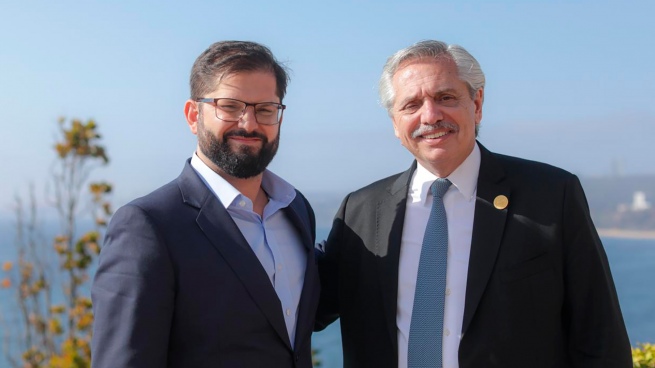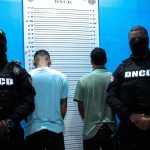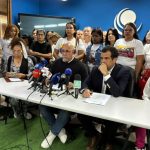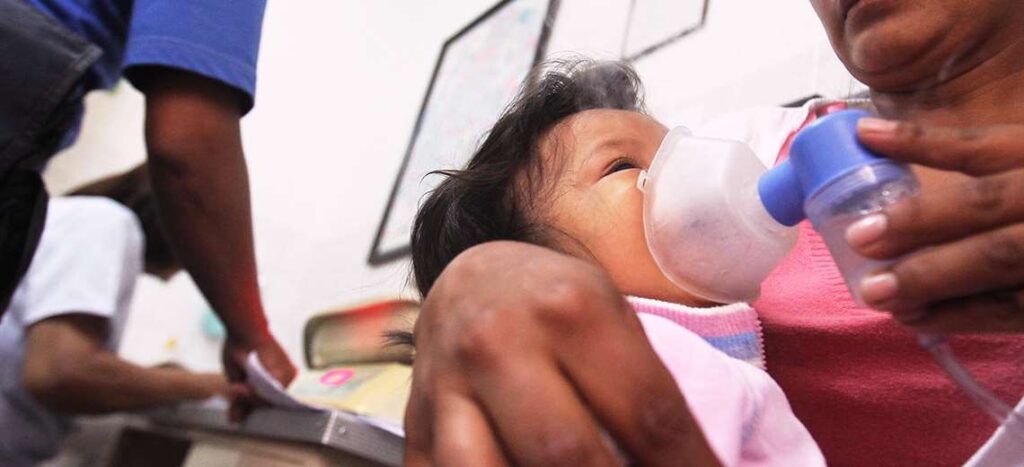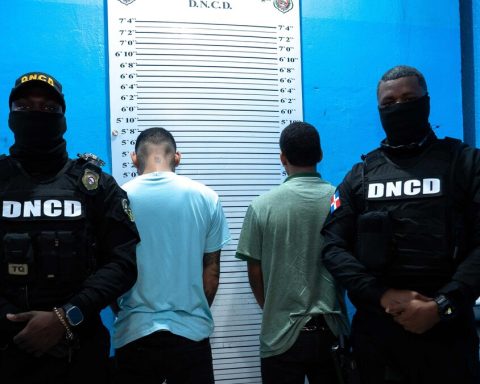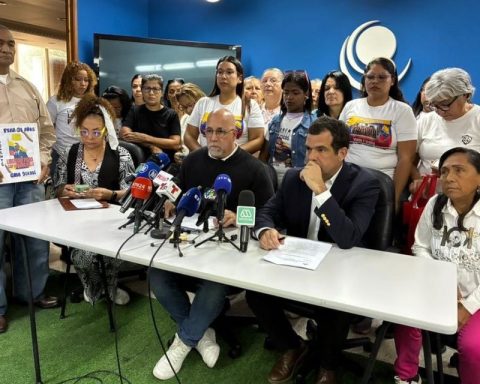President Alberto Fernández will receive his Chilean counterpart next Monday Gabriel Boricin the first official trip of the trans-Andean president after taking office on March 11, with whom he will hold a bilateral meeting and then lead an extended meeting of the delegations and a contact with the press.
Boric will arrive in the country on Sunday afternoon, where he will be received by the foreign minister santiago cafieroto then develop an intense agenda over two days, which will include visits to Congress, the former ESMA and the Museum of Fine Arts, and which will start this Monday morning with the delivery of a floral offering to the monument to José of San Martín, according to the Chilean government.
Later, Fernández will receive him at Casa Rosada, where they will hold a private meeting, while in parallel the Argentine ministers will hold an exchange with their trans-Andean peersto which both leaders will join once the bilateral meeting ends.
The former student leader was elected president by the left-wing coalition Approve Dignidad, after defeating Pinochet José Antonio Kast in the December 21 runoff, in which he won with 55.87% of the vote over 44.13%. of his rival
At the end of the work meetings, the Presidents and their ministers will sign a memorandum of understanding on Foreign Relations, International Trade and Worship to institutionalize the cooperation of both countries in terms of LGBTIQ+ Human Rights.
They will also be signed agreements of understanding between the Argentine Ministry of Women, Gender and Diversity and the Chilean Ministry of Women and Gender Equityin this case for cooperation on Gender Equality and Women’s Empowerment.
A letter of intent on cultural agreements will also be signed, as well as a memorandum of understanding for cooperation on consular and migratory matters, after which both leaders will offer a joint statement to the media from the Bicentennial Museum.
Last Thursday, Cafiero received the ambassador appointed by the new Chilean Government, Bárbara Figueroa, who gave him copies of the Letters of Credence
On the afternoon of that same Monday, Boric will go to the Legislative Palace to hold meetings with the provisional president of the Senate, Claudia Ledesma, and the head of the Chamber of Deputies, Sergio Massa.
Then, accompanied by the presidents of both chambers of the Chilean Parliament and the rest of the parliamentary delegation, an extended work meeting and a protocol meeting will be held with the vice president of the Supreme Court, Charles Rosenkrantzin which Boric will be accompanied by the head of the highest court in Chile, Juan Eduardo Fuentes.
At the end of the day, Fernández and Boric will attend a concert in which artists such as Manuel García, Inti Illimani, Víctor Heredia and Chango Spasiuk, among others, will participate; later, the head of state will entertain his Chilean counterpart with the traditional state dinner that he will offer in his honor.
Boric’s tour will conclude with a meeting with Chileans residing in Argentina that will take place at their country’s embassy in Buenos Aires
On Tuesday, Boric will inaugurate the business forum of the Argentina-Chile Trade Committee, which will be attended by about 50 businessmen from both countries.
Subsequently, the Trans-Andean President will go to the Space for Memory and for the Promotion and Defense of Human Rights (former Esma), where, in addition to touring the former clandestine detention center, he will meet with Buscarita Roa, a member of the Grandmothers of Plaza de Mayo de Chilean origin.
Boric’s tour will conclude with a meeting with Chileans residing in Argentina that will take place at their country’s embassy in Buenos Aires.
Also in the official delegation will be the presidents of the Chilean Senate and Chamber of Deputies, Álvaro Elizalde and Raúl Soto, together with senators Jaime Quintana, Juan Ignacio Latorre and Paulina Núñez and deputies Eric Aedo, Yovana Ahumada, Lorena Fries, Erika Ñanco and Guillermo Ramírez
The delegation that will accompany him on the state visit will be made up of the Foreign Minister, Antonia Urrejola; and the defense ministers, Maya Fernández; of Energy, Claudio Huepe; of Women and Gender Equity, Antonia Orellana; of Culture, Julieta Brodsky; the Undersecretary for International Economic Relations, José Miguel Ahumada; and the Chilean ambassador to Argentina, the trade unionist Bárbara Figueroa.
Also in the official delegation will be the presidents of the Chilean Senate and Chamber of Deputies, Álvaro Elizalde and Raúl Soto, together with senators Jaime Quintana, Juan Ignacio Latorre and Paulina Núñez and deputies Eric Aedo, Yovana Ahumada, Lorena Fries, Erika Ñanco and Guillermo Ramírez.
The contingent that will depart from Chile will also include the head of the Trans-Andean Supreme Court, Juan Eduardo Fuentes, and representatives of the business world such as the president of the Association of Metallurgical and Metalworking Industries, Dante Arrigoni; his peer from the Chilean Institute of Rational Business Administration, Lorenzo Gazmuri; and the referent of System B of Chile (an organization that promotes a sustainable economy, guided by the well-being of people and the protection of nature), Josefa Monge.
The delegation that will arrive in Buenos Aires will be completed with the general manager of Coopeuch (Chile’s main cooperative bank), Rodrigo Silva; the referent of Mujeres del Pacífico, Fernanda Vicente, and the ecofeminist entrepreneur and ambassador of the Woman Economic Forum 2022, Jessica Andrea Rodríguez Mena.
The presidents will sign a letter of intent on cultural agreements, as well as a memorandum of understanding for the cooperation of consular and migratory matters
Last Thursday, Cafiero received the ambassador appointed by the new Chilean Government, Bárbara Figueroa, who gave her copies of the Letters of Credence that accredit her as a representative in Argentina, to begin her diplomatic functions.
During the meeting, they discussed President Boric’s state visit that will begin this Monday and defined it as an opportunity to resume the bilateral agenda of friendship, cooperation and integration between the two countries.
Figueroa, appointed last Sunday, has a degree in psychology, a philosophy professor and a leader with extensive experience in the trade union world, since she was president of the Central Unitaria de Trabajadores de Chile (CUT), which made her the first Chilean woman who headed the workers’ union.
In relation to Boric’s imminent visit, at the San Martín Palace they highlighted that, after his inauguration, a common agenda was outlined between the Casa Rosada and the Palacio de La Moneda that includes “the promotion and protection of Human Rights, the centrality of gender policies, care for the environment and investment in science and technology and innovation to promote development”.
“In regional terms, we have a view very similar to the agenda expressed by the President of Chile in terms of, fundamentally, resolving the inequalities that exist in our continent,” they stressed to Télam from the Foreign Ministry.
And they stressed that both governments agree on the intention to advance with “iron policies” in everything that concerns human rights and democracy, although “without forgetting the need for economic development, so that those rights and so that those values can be developed in a full way in the region”, they limited from the Foreign Ministry.
“In regional terms, we have a view very similar to the agenda expressed by the President of Chile in terms of, fundamentally, resolving the inequalities that exist in our continent,” they stressed to Télam from the Foreign Ministry.
And they added that in terms of economic integration one of the priorities will be the construction of the digital gateway submarine cable to South Americawhich was launched in January 2021 by Fernández and former Chilean President Sebastián Piñera.
Boric, 36, succeeded Piñera and became the youngest president in the history of Chile but also in the world, at least among incumbent presidents, barely surpassed by leaders with other titles such as prime ministers, kings or regent captains. .
The former student leader was elected president by the left-wing coalition Approve Dignidad, after defeating Pinochet José Antonio Kast in the December 21 runoff, in which he won with 55.87% of the vote over 44.13%. of his rival.
The second round in December registered a record turnout for the elections (in Chile participation is historically low), since 8.3 million Chileans voted out of the more than 15 million who were qualified to do so. With these numbers, the December election was attended by 55.6% of the registered voters.
